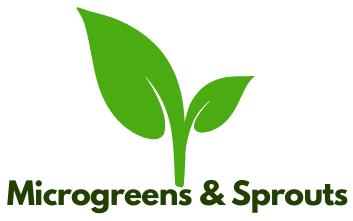Thyme
Thyme Seeds
Thyme seeds come from the thyme plant, a small, woody herb known for its aromatic leaves. When sprouted, thyme seeds produce tender, flavorful microgreens that carry the herb’s distinctive scent and taste, perfect for culinary and health uses.
History of the Seed
Thyme is native to the Mediterranean region and has been used since ancient times for culinary, medicinal, and religious purposes. The seeds have been cultivated and passed down through generations, valued for their flavor and healing properties.
Nutritional Information
Per 100 grams of thyme sprouts (approximate):
- Calories: 101 kcal
- Protein: 5.6 g
- Fat: 1.7 g
- Carbohydrates: 24.5 g
- Fiber: 14 g
- Vitamin C: 160 mg
- Vitamin A: 4750 IU
- Iron: 17 mg
Nutrition Benefits
- High in antioxidants that support immune health
- Rich in vitamins A and C for skin and eye health
- Contains iron aiding in blood oxygen transport
- Provides fiber for digestive health
- Natural antibacterial properties
Sprouting Process and Directions
- Measure: Use about 1 tablespoon of thyme seeds for sprouting.
- Soak: Soak seeds in clean water for the recommended soak time.
- Rinse: Rinse thoroughly to remove any seed coatings or impurities.
- Drain: Drain well to avoid mold growth.
- Sprout: Place seeds in a sprouting jar or tray, keep in a dark or semi-dark area initially.
- Rinse & Drain: Rinse twice daily, drain thoroughly each time.
- Light Exposure: After initial sprouting (about 2 days), move to indirect sunlight to develop chlorophyll.
- Harvest: Once sprouts reach desired length, rinse and prepare for use.
Soak Time
4 to 6 hours
Rinse Time
Rinse twice daily (morning and evening), about 30 seconds each rinse
Growing Time
Typically 4 to 7 days
Harvest Time
4 to 7 days after sprouting begins, when sprouts are about 1–2 inches long
Yield
From 1 tablespoon of seeds, expect approximately 1 to 1.5 cups of thyme sprouts
Days to Sprout
Sprouts begin to appear within 2 to 3 days
Best Growing Methods
- Sprouting jar with mesh lid for easy rinsing and draining
- Shallow sprouting trays with good drainage
- Keep temperature between 65–75°F (18–24°C) for optimal growth
Storage
- Store harvested sprouts in an airtight container in the refrigerator
- Use within 3 to 5 days for best freshness and flavor
Using the Ready Sprouts
- Add fresh thyme sprouts to salads, sandwiches, and wraps
- Use as garnish on soups, roasted vegetables, or grilled meats
- Incorporate into dips, dressings, or herbal teas for added flavor and nutrients
Helpful Tips
- Ensure thorough rinsing to prevent mold growth
- Avoid overcrowding seeds during sprouting for better air circulation
- Use filtered or distilled water if tap water quality is poor
- Keep sprouts away from direct sunlight during initial stages to prevent bitterness
Did You Know
Thyme has been used since Ancient Egypt not only for cooking but also in embalming practices due to its strong antibacterial properties. Thyme sprouts carry much of these benefits with a concentrated nutrient profile in a small package.
